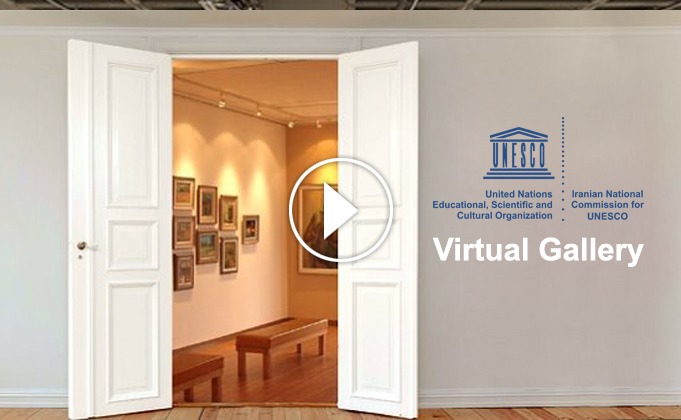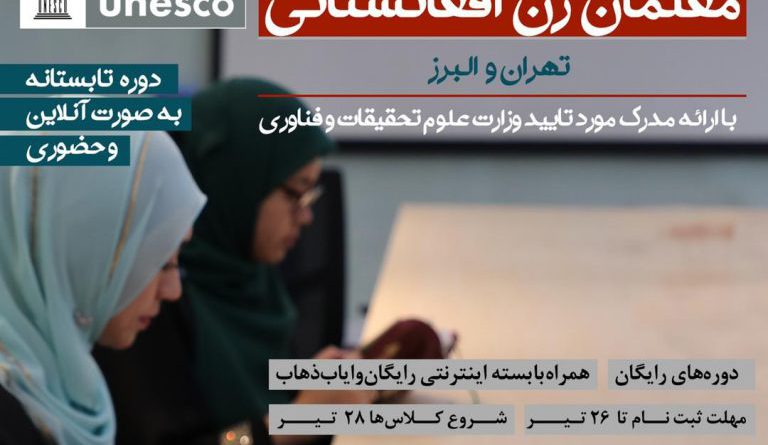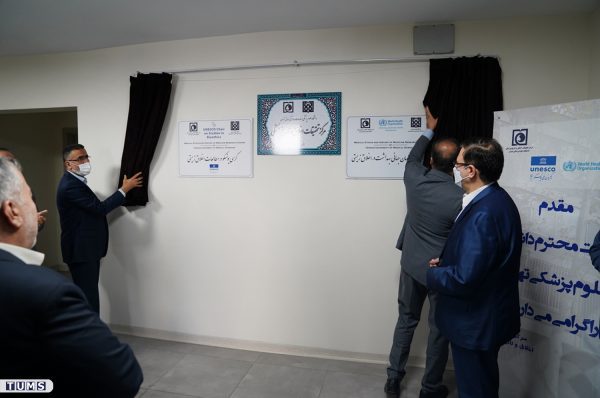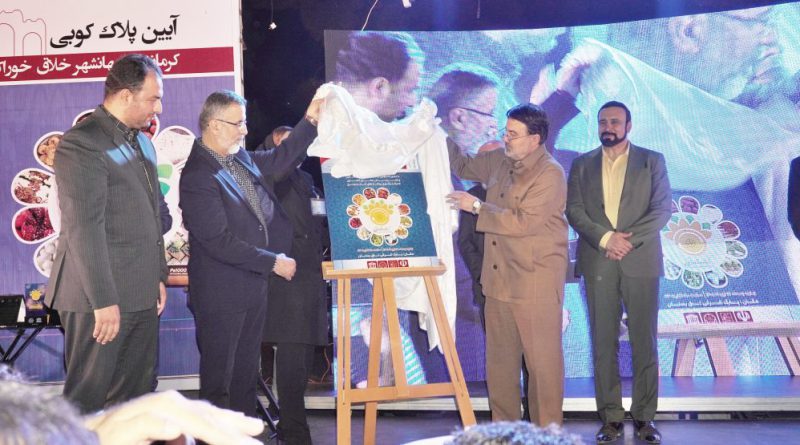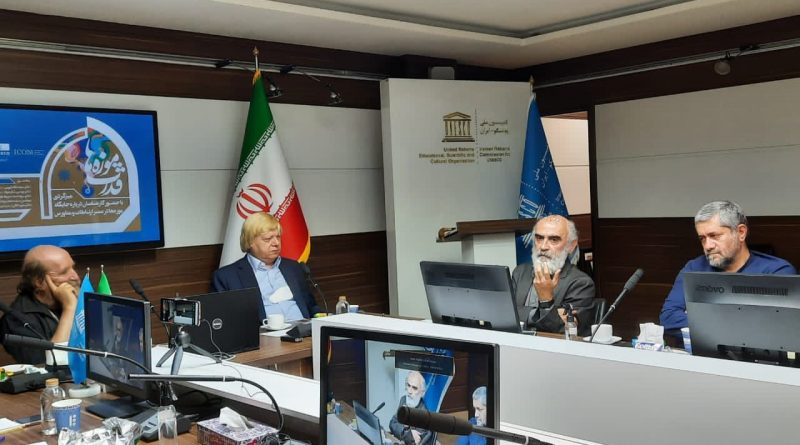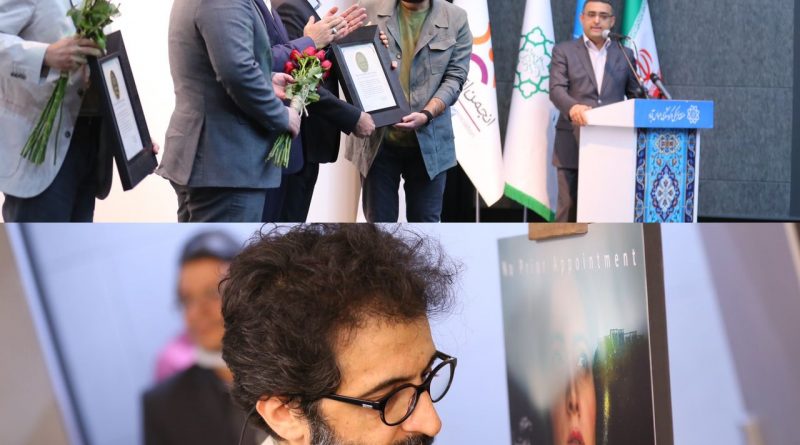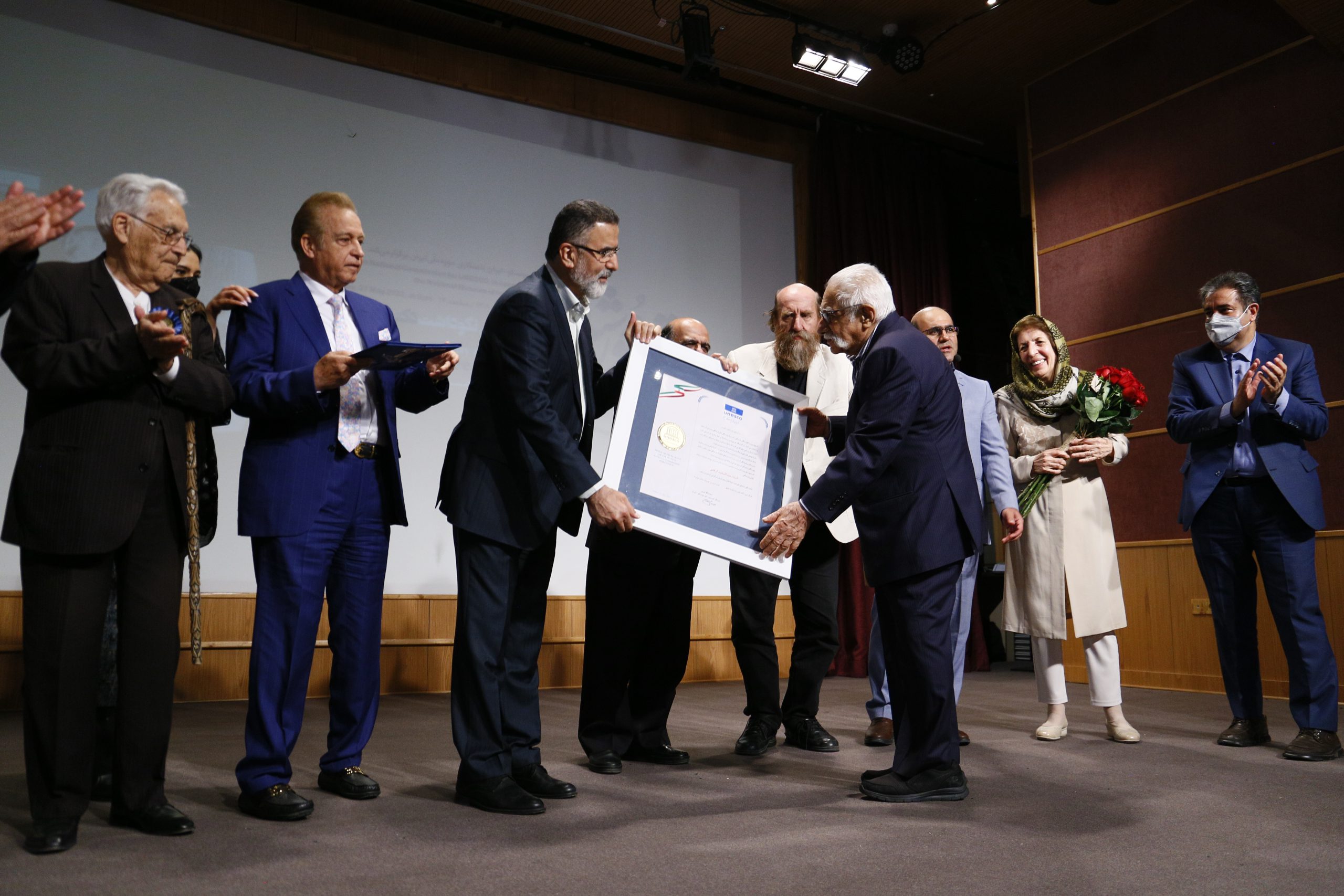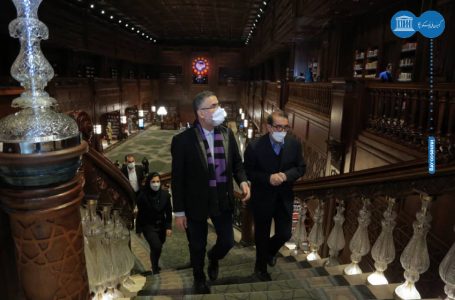List Of Anniversaries, Events And Personalities
- Home
- »
- List Of Anniversaries, Events And Personalities
- 850th anniversary of the active life of Shahab al-Din Yahya ibn Habash Suhrawardi, philosopher and mystic (1154 – 1191) (Islamic Republic of Iran with the support of Iraq and Syrian Arab Republic) (2018)
Shahab al-Din Yahya ibn Habash Suhrawardi, the founder of school of Illuminationism in philosophy, known for his works on philosophy by bringing together Eastern and Western traditions of philosophy. He set the grounds for strengthening dialogue between Iranian, Islamic and Greek philosophies. Also, his cross-cultural works played a vital role in reducing violence and extremism during a troubled period. His philosophy teaching focuses on religious tolerance and intercultural dialogue, which is directly linked to UNESCO C/4. (SHS)
- 1750th anniversary of the foundation of the University of Gundi-Shapur (Islamic Republic of Iran with the support of India and Iraq) (2018)
The ancient University of Gundi-Shapur was a major centre of education in medicine, philosophy, theology and science in today’s Iran during late antiquity. Its achievements have been widely documented by prominent scholars, including Edward Brown, George Sarton and De Lacy O Leary. The University provided an environment free of dogmatism for the various peoples that studied there, including Egyptians, Greeks, Romans, Syrians and Iranians. It brought vast progress in science and medicine, promoting respect for critical thinking. Its library held 400,000 books and manuscripts in Pahlavi, Syrian, Greek and Sanskrit in different fields of science. The University and its legacy make an important contribution to ED’s Strategic Objective 2 (38 C/5) – Empowering learners to be creative and responsible global citizens. (ED)
- 700th anniversary of authoring the book of Golshan-e Raz by Sheikh Mahmūd Shabestarī (1317) (with the support of Azerbaijan) (2017)
Golshan-e Raz (The Secret Rose Garden) was written in response to 17 queries concerning human growth and elevation. It seeks to promote ethical concepts, the notion of the balance between the spirit and the body, moderation and prevention of prejudice and violence, environmental conservation as well as global ethical standards.
Sheikh Mahmoud Shabestari is one of the most celebrated Iranian Sufi poets. His works were primarily in the area of education and promoting ethical and mystical concepts to combat ignorance, prejudice and violence. He is a pioneering figure in promoting dialogue through poetry; the basis on which his most famous work, a mystic text called Golshan-e Raz was written in rhyming couplets (Mathnawi).
The global importance of Golshan-e Raz is such that to this date more than 40 descriptions and explanations are written about it. The book is translated into five languages: English, French, German, Turkish and Urdu. The influential message of Sheikh Shabestari to the world, 700 years back, is respect for the environment and the beauties of creation, where he recommends the necessity to preserve God’s creations. - 1150th anniversary of the birth of Muhammad Zakariyā Rāzī (also known by his Latinized name: Rhazes or Rasis), physician, chemist and philosopher (866-925) (joint nomination by Iran (Islamic Republic of) and Tajikistan) (2016)
Muhammad Zakariya Razi, the renowned Persian physician, chemist and philosopher was born in Ray, in the Southern part of the Iranian capital, Tehran, in 866 AD. His works in medicine, chemistry and philosophy gained world renown to the extent that George Sarton, the founder of the history of science, named him “The Greatest Physician of Eastern World and the Medieval Ages”. His discoveries of Alcohol and Sulphuric Acid brought him the world title of “The Father of Chemistry”. In addition to Chemistry, Razi had world fame in Medical sciences. His knowledge in this area of science was such that in order to write his Canon of Medicine, Avicenna used Razi’s book of “al-Hawi fi al-Tibb” as reference. Razi was the first to differentiate smallpox from measles.
Razi played a significant role in promoting knowledge across borders. He contributed to the evolution of medical sciences, chemistry and philosophy in the world, and beyond doubt, Razi is an important figure of ninth-century science, history and medicine. - 1050th anniversary of the birth of Seyyed Morteza Alamolhoda, scientist (966-1044) (with the support of Iraq and Lebanon) (2016)
Seyyed Morteza Alamolhoda was a renowned Persian scientist who had an important role in promoting ethical and religious teachings in the world of Islam. In his efforts to eradicate ignorance, he played an important role in linking the different branches and schools of thought of Islam. He was personally a Shia scholar but he was in a very close and active cooperation with Sunni and even with non-Muslim scholars.
A most important objective of the nominated personality was to teach ethics and humanitarian principles in an attempt to eradicate prejudice and to empower the spirit of equity and tolerance. The celebration could help outline the “important role in promoting ethical and religious teachings in the world of Islam”, particularly useful in the current global context with the rise of extremism and intolerance grounded on culture, religion or beliefs. The contribution to the work of UNESCO and the United Nations for the promotion of interreligious dialogue may also be considered, particularly with respect to diversity in Islam. - 700th anniversary of the birth of Mirseyed Ali Hamedani (1314-1385), mystic and poet (Islamic Republic of Iran and Tajikistan, with the support of India and Pakistan) (2014)
Mirseyed Ali Hamedani was a Persian Sufi, a poet and a prominent Muslim scholar. Born in a noble family in Hamadan (Islamic Republic of Iran), he travelled far and wide throughout the Muslim world and beyond. Hamedani was one of the principal historical figures who shaped the culture of Kashmir, both architecturally (fusion of Central Asian and Kashmiri architecture), and also through the flourishing of arts, crafts and hence the economy in the valley. The skills and know-how he brought to Kashmir gave rise to an entire industry. A mystic and a social reformer, Hamedani was also a man of letters; he wrote about a hundred pamphlets in Arabic and Persian on subjects related to Sufism, ethics, etc.; the book Zakhirat-ul-Maluk has been published in several languages. He ended his life in the city of Kulob in the Khatlan region of Tajikistan, where people still today gather in a large numbers to pay homage to him. The proposed event “Mir Saeed Ali Hamadani and Civilization of Peace” is well conceived; the anniversary proposal is jointly submitted by two Member States (Islamic Republic of Iran and Tajikistan) with the support of India and Pakistan. - 800th anniversary of the compilation of Fawā’ih al-Jamāl wa Fawatih al-Jalāl, work of philosophy and mysticism (c. 1214) (2014)
The influence of the compilation remains recognized in contemporary scholarship as a significant component of a Sufi tradition that has cultural and historical significance. In this respect, it appears that the proposal is consistent with the ideals and missions of UNESCO and does concern a work of worldwide significance. - 600th anniversary of the compilation of Maqāsed al-Alhān, work in the field of musicology (c. 1414) (with the support of Azerbaijan and Turkey) (2014)
The Maqāsed al-Alhān is a prominent work in musicology which is a reference book to the Iranian traditional music of its era. It covers not only the Islamic Republic of Iran but also some of the surrounding region in Central Asia. - 800th anniversary of the birth of Fakr-al-Dīn Ebrāhīm Erāqī, poet and sufi (c. 1214-1289) (2014)
Eraqi’s movements to different regions in view of seeking knowledge and also expanding Sufism (from Iran to Arabia, India and Anatolia) would be an outstanding model for what is called nowadays Intercultural Dialogue. His encounters and exchanges with different savants like Jalal al-din Rumi, resulted in the development of his great works such as his “Divan” which is known as love mysteries. Regarding his place in both Persian and Sufi literatures, his anniversary would contribute certainly to the promotion and reinforcement of Intercultural-Dialogue. - 1,000th anniversary of the compilation of Avicenna’s Kitab-al-Qānūn fī ţ-ţibb (The Canon of Medicine) (1013) (2013)
The Medical Encyclopaedia The Canon of Medicine was the first book which used a scientific approach to the “various states of the body; in health and when not in health”. It had an extremely important influence on the scientific community for centuries; providing a precise guide for practical experimentation, the text contributed to the development of inductive logic and the scientific method. The celebration of this anniversary would symbolize the celebration of the birth of the scientific methodology and it would increase public awareness of science in line with UNESCO’s mandate. - 1,000th anniversary of the achievements of Abu Saeed Ab al-Kheir, writer and philosopher (978-1059) (2013)
Abusa’id Abolkhayr or Abū-Sa’īd Abul-Khayr, also known as Sheikh Abusaeid or Abu Sa’eed, was a famous Persian Sufi who contributed extensively to the evolution of Sufi tradition.
The biggest part of what is known from his life comes from the book Asrar al-Tawhid (or “The Mysteries of Unification”) written by Mohammad Ibn Monavvar, one of his grandsons, 130 years after his death. The book, which is an important early Sufi writing in Persian, presents a record of his life in the form of anecdotes from a variety of sources and contains a collection of his words.
During his life his fame spread throughout the Islamic world, even to Spain. He was the first Sufi writer to widely use ordinary love poems as way to express and illuminate mysticism, and as such he played a major role in the foundation of Persian Sufi poetry. - 1,100th anniversary of al-A’lāq al-Nafisa compilation of the prominent work of Iranian geographer Ebn Rosteh (Ibn Rusta), geographer and explorer (913) (2013)
Ibn Rustah was a 10th century Persian explorer and geographer born in Isfahan. He wrote a geographical compendium. The information on his home town of Isfahan is especially extensive and valuable. There is a description of the twenty districts (rostaqs) of Isfahan containing details not found in other geographers’ works. His information on the non-Islamic peoples of Europe and inner Asia makes him a useful source for these far away regions (he was even aware of the existence of the British Isles and of the Heptarchy of Anglo-Saxon England) and for the prehistory of the Turks and other steppe peoples. The book is supposed to be compiled between 903 and 913. - 500th anniversary of the achievements of Abd-ol-Ali ibn Muhammad ibn Husayn Birjandi, scientist and astronomer (born 16th century; died 1528) (2012)
Abd-ol-Ali ibn Muhammad ibn Husayn Birjandi was a prominent Persian mathematician, astronomer and physicist in the 16th century. He wrote several books, in particular in the field of celestial mechanics, compilation of calendars, logic, and agriculture. He is well known in Afghanistan, India, Pakistan, Russia, Europe and the United States of America, where his scientific work has been analysed and studied. - 1250th anniversary of the birth of Fârsî Beizavî , known as Sîbûye (Sîbawaihi), philologist (761-796) (2011)
Fârsî Beizavî (761-796), an Arabic grammarian and philologist, studied grammar under Abu Khatab Akhfash (a renowned scholar). His book known as Al-Kitab is an important and pioneering work on Arabic grammar.
Fârsî Beizavî owes his historic importance to the privilege of being the first to write a grammar book for the Arabic language and to develop a methodology for distinguishing and studying the sounds in the Arabic language. - 700th anniversary of the death of Qutb-ud-Dîn Shîrazî, scientist (1236-1311) (2011)
Qutb-ud-Dîn Shîrâzî (1236-1311) wrote critiques of the Almagest of Ptolemy. He also continued the optical studies of Alhazen. It was Qutb-ud-Dîn Shîrâzî who first gave a correct explanation for the formation of the rainbow, which was elaborated on by his student Kamal al-Din al-Farisi. He produced two prominent works on astronomy – The Limit of Accomplishment concerning Knowledge of the Heavens, and The Royal Present. Besides astronomy, he wrote extensively on medicine, mathematics and “traditional” Islamic sciences.
- 750th anniversary of the active life of Khâje Nasîr-ud-Dîn Tûsî, scientist (1201-1274), with the support of Azerbaijan (2011)
Khâje Nasîr-ud-Dîn Tûsî (1201-1274) was the father of the renaissance in astronomy in the Islamic world and designed the observatory of Maragheh in 1261, which was the turning point in his life and consolidated his renown. He was able to revitalize the sciences of mathematics and astronomy in his time because of the comprehensiveness of his personality. His fields of study were mathematics (arithmetic, geometry and algebra), astronomy, ethics, jurisprudence, literature, music, mineralogy, medicine, literature, basic sciences, and engineering; he was thus extremely comprehensive and was the pioneer of his time in these diverse fields. He is also named the father of mathematics, and computer studies and aeronautics were later inspired by his works. - 1000th anniversary of the composition of the Shâhnâme “The Book of the Kings” (2010)
The Shâhnâmeh is the work of the renowned tenth-century poet Ferdowsi (941-1020), who was the Persian equivalent of such poets as Homer for the classical world, and Shakespeare and Pushkin for English and Russian speakers. The work established Persian as a significant literary language, and is a key text in the history of the Persian Empire. International art historians consider this text as one of the most important of its kind ever produced. The text is also of critical significance as it helped to establish Persian as a monumental language and saved it from disappearing.
Prince Bayasanghor, who commissioned the work, was the grandson of Timur, known to Western history and literature as Tamerlane.
The Shâhnâmeh is listed on the Memory of the World Register and its world significance has been consequently established. The Islamic Republic of Iran plans to organize an international congress to commemorate this anniversary, and UNESCO should be associated as a partner of the conference in order to stress the importance of safeguarding documentary heritage and its contribution to preserving memory.
- 400th anniversary of the death of Sheikh-e Bahaee, calligrapher, mathematician, astronomer, doctor, architect and poet (1531-1609) (2009)
Sheikh-e Bahaee’s fame was due to his excellent command of mathematics, architecture and astronomy. He is considered to be one of the founders of Islamic architecture. The construction of the Meidan Emam in Esfahan, which is inscribed on the World Heritage List, was based on his plans. He also made a sun clock, which is located in the Western part of the Imam Mosque. He was mentioned in many scientific publications in the field of mathematics and geometry.
- 950th anniversary of the birth of Imam Mohammad Ghazali, philosopher (1058- 1111) (2008)
Al-Ghazali was a Muslim theologian, philosopher and mystic and he remains one of the most celebrated scholars in the history of Islamic thought. There is no doubt about the importance and general relevance of the anniversary, in view of the major significance of al-Ghazali not just within classical Persian and Arabic culture but also in the philosophy and theology of the European Middle Ages and Renaissance.
- 1000th anniversary of the birth of Abu Moein Hakim Nasser Khosrow Qubadiyani (2003)
Abu Moein Hakim Nasser Khosrow Qubadiyani (1003-1087) was an eminent philosopher, poet and theologian and is remembered as a prominent writer in the Persian language. His highly significant works, both in prose and verse, have greatly enhanced Persian culture and thought.
- 100th anniversary of the birth of Abol-hassan Saba (2002)
As a great musician and violinist Abol-hassan Saba (1902-1957) is well known in Iran and other countries of the region. He recorded a great deal of Iranian folk songs and lyrics, making them available for specialists and the general public in Iran and beyond. He is the author of an important theoretical publication “Iranian musical instruments and their history” which gives an insight into Iran’s musical history. Abol-hassan Saba is a recognized cultural figure in the region.
- Eight hundredth anniversary of the birth of Nasir ad-Din Toosi (Azerbaijan and Islamic Republic of Iran) (2001)
The renowned astronomer, mathematician and philosopher (1201-1272) predicted the position of the Sun, the Moon and various planets. He made a significant contribution to trigonometry and spherical geometry and was active in other areas of science, medicine, ethics and law.
- Hundred and fiftieth anniversary of the death of Amir Kabir Mirza Taghi Khan (2001)
Mirza Taghi Khan (1807-1851), born in Farahan, was a great man of justice, culture and science. A renowned reformist in the region, he was a strong supporter of the rule of law.
He founded the Dar al-Funun (Polytechnic School), the first school to promote modern science and technology.
He established the Court of Justice and supported religious minorities by providing equal rights for all and founded schools for Armenians in Julfa and Tabriz.
- One thousandth anniversary of the death of the Iranian mathematician and astronomer Abul-Vafa Mohammad-Ebne-Yahya Buzjani (1998).
One of the greatest Iranian mathematicians and astronomers, Abul-Vafa Mohammad-Ebne-Yahya Bouzjani played an important role in the development of the science of trigonometry, and discovered the main principles and theorems in trigonometry.
Among his major achievements are the development of a new method for the construction of sine tables, his study of the tangent and his introduction for the first time of secant and cosecant.
In the field of astronomy, Abul-Vafa Mohammad-Ebne-Yahya Bouzjani, studied in particular the movement of the moon and its variations.
- Three hundredth anniversary of the death of the Iranian scholar Molla Mohammad Bagher Majlesi (1998).
Famous worldwide, Molla Mohammad Bagher Majlesi, was one of the greatest and most famous Shi’ite scientists of the safavid era.
Publications exceeded 60, among which the ‘Behar-ul-Anvar Fi Akhbar-ulAsar’, in Arabic is the most important and renowned. It is an encyclopedia consisting of 26 volumes in the Asna-Ashari Shi’ah.
He bore high-ranking positions – Shiek-Al-Islam, and Imam Jomeh (Friday Prayers Leader), and was the religious plenipotentiary nationwide. - Centenary of the birth of the Iranian poet Nima Yushij (11 November 1996).
- Six hundredth anniversary of the birth of the Iranian poet Mohammad Jami (1996).
- Nine hundredth anniversary of the death of the Iranian scholar Omar Khayyam (1996).
- 400th anniversary of the birth of Saib Tabrizi (Mirza Muhammad Ali) (1995)
Said Tabrizi was a great master of Persian poetry and also a patron of the arts: many talented young poets studied under him. He is considered to be a sage, whose verses have become proverbs in the Persian oral tradition.
He is the greatest classical Persian poet after Hafiz; he greatly influenced poets in Iran, Turkey, Afghanistan and the Indian subcontinent.
The Islamic Republic of Iran is planning various events and activities at national and regional level, including lectures, exhibitions, publications and audio-visual programmes. - 1000th anniversary of the completion of the manuscript of the Shahnameh (Book of Kings), a monumental work by the celebrated Iranian epic poet Ferdowsi (1990)
- 600th anniversary of the death of the Iranian poet Khajeh Shams Od-Din Mohammad Hafez Shirazi (1989)
- 900th anniversary of the death of Khajej Abdollah Ansâri, a famous Sufi and a very well–known Persian–language scholar and poet (1989)
- 900th anniversary according to the lunar year of the Hegira, of the death of Al Imam Al-Ghazali, the famous thinker, eminent theologian, jurist, mystic and moralist (1985)
- 800th anniversary of the birth of Sheikh Muslih al-Din Saadi Shirazi, renowed Iranian writer, thinker and poet (1984)
- 1000th anniversary of the birth of the outstanding scientific thinker Abu ‘Ali ibn Abdallah ibn Sina (Avicenna) (1980)
The First Virtual International Exhibition and Conference on Calligraphy along the Silk Road Countries
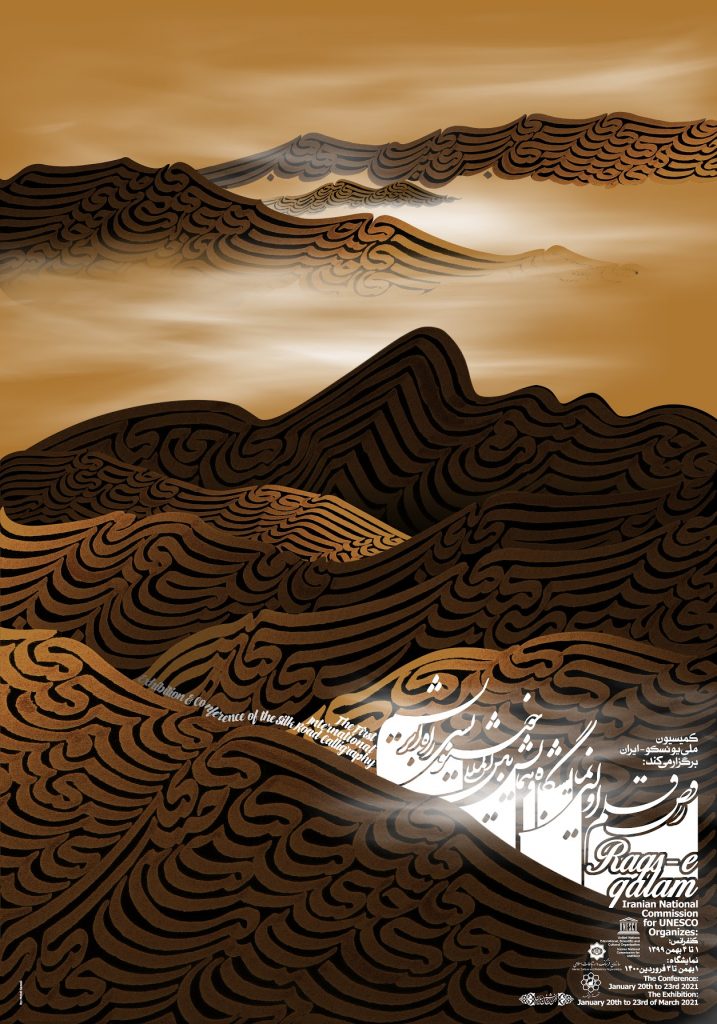
VIRTUAL GALLERY OF IRANIAN NATIONAL COMMISSION FOR UNESCO
